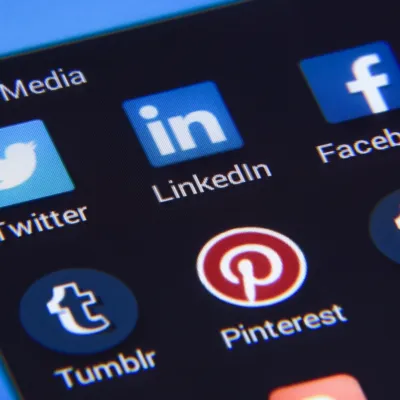Which Social Media Platform is Right for Your Business
A big mistake that small to medium sized businesses make when launching a social media program is to try to be in every major social media platform. Some of those channels include Facebook, Instagram, Twitter, Snapchat, and LinkedIn.There are two major reasons for not trying this approach – FIRST, it takes major resources (i.e. – time and/or finances) to take this broach approach. it’s better to start with 1-2 social media platforms and build from there; and SECOND, each business sector tends to have 1-2 natural social media channels that it’s audience is participating in. It’s best to find out which ones they tend to engage online in before any social media program launch. The following are a few basic questions that you should ask yourself, before launching that social media campaign.
Is my business selling to businesses (B2B) or to direct consumers (B2C)?
There is a distinction between selling to business and selling to a consumer. For those who are starting their first business or thinking about it, here’s a short recap. If you are a business owner, you will serve either other companies or consumers. If you are selling products or services to another business, then you are a B2B company, which stands for business-to-business. If your primary business transactions are with an individual, then you are a B2C, which stands for business-to-consumer. And some companies can be identified as both B2B and B2C. There can be major differences in buyers, in the selling process, in tactics and strategy, between B2B and B2C sales. And each social media platform has a natural affinity for B2B versus B2C. If you are a B2B company, you might want to start a social media program using platforms like Twitter, Facebook, and LinkedIn to reach your audience. A lot of businesses are already on these platforms. If you are a B2C company, you might consider Facebook, Instagram, and Pinterest. These platforms tend to be more visual and allow for sharing and commenting.
Who is my target audience?
Many companies make the mistake of trying to appeal to everyone. Ultimately this approach tends to appeal to no one, because the messaging is too general. When you narrow your focus to a tighter audience segment, you can speak more ‘personally’ to your audience. Even small businesses can compete with large companies by properly targeting a niche market. (Please note that this doesn’t mean that you will exclude prospects who do not fit your target criteria. But rather you should focus your marketing resources on an audience that might have higher potential.) To understand your customers, even before you meet them, you need to ask yourself some questions. Here are some variables for defining your targeting market audience: 1. Geographic (e.g. where is your audience located)2. Demographic (what is the average age and gender of your target buyer, what’s their average income, do they have kids etc.)3. Psychographic (social layer, lifestyle etc.)4. By behavior (attitude towards the product, readiness to shopping etc.) Here are some tips or rather suggestions of questions you need to answer that can help you define your target market. 1. Where is your audience located?2. Age and gender?3. Average income?4. What challenges do they face, their desires and what issue do they want to solve? 5. How do you promote your product to those individuals (are they tech-savvy or more traditional)?6. Analyze the competition. What are they doing to market themselves online? If your audience is an older audience, you will want to set up you social media in the more established channels – like Facebook and Twitter. If you are trying to reach a younger demographic, Instagram and Snapchat would probably be more appropriate.
What are your social media goals?
Today everybody uses social media, no one can deny that. But simply being ‘present’ online isn’t enough. Regardless of who you are, a small startup or a large enterprise, a key to justifying your social media work is setting up measurable goals. Without goals, you won’t know how well your social media strategy is performing and if your efforts are paying off. Think of it as creating a roadmap to get where you want to go. By setting goals before you begin, it’s easier to measure success or failure. In defining your social media goals, start with the broad goals that you’d like to achieve over a year. Look past the obvious criteria such as ‘likes’ and ‘retweets’. Focus on advanced metrics such as leads, conversion rates, and web referrals. It would be a good idea to keep track of the so-called SMART pattern. This means that each goal should be: • Specific• Measurable• Achievable• relevant • time-limited Some common broad social media goals include: 1. Increase brand awareness 2. Drive traffic to your website3. Improve ROI4. Create a loyal fanbase5. Generate new leads6. Conversion rates7. Increase in-person sales Be aware that different platforms offer different levels of analytics. Facebook and Twitter tend to offer the more robust activity details. Be sure to look for ways to add to that analytic detail with tools like Google Analytics, vanity links, etc.
So which social media platform is right for your business?
As we started this article, we will end it. It is best for you to reflect on your specific business, your audience, and your goals before starting a social media program. You can download a copy of this Social Media Infographic here– produced by Leverage New Age Media. Time will tell which social media platform best fits your business marketing style and budget. So, start small and keep it ‘in-house’ at first. This allows you to get faster feedback about what’s happening – what’s working and what’s not. Whichever social media platform is your first ones may not be your best performers in the long run, but you will learn a lot in the process. But, those lessons will only come when you engage with your audience online.
You can download a copy of this Social Media Infographic here– produced by Leverage New Age Media. Time will tell which social media platform best fits your business marketing style and budget. So, start small and keep it ‘in-house’ at first. This allows you to get faster feedback about what’s happening – what’s working and what’s not. Whichever social media platform is your first ones may not be your best performers in the long run, but you will learn a lot in the process. But, those lessons will only come when you engage with your audience online.
Facebook
Twitter
Linkedin
Pinterest
Google-plus

Content Marketing
Omnichannel Marketing – Go Big or Go Home
|
0 comments
Digital
Generating New Business Leads without Cold Calling
|
0 comments
Digital








